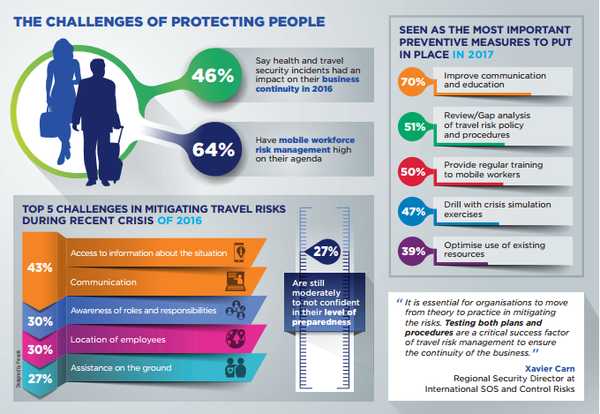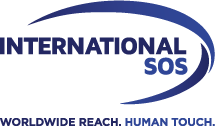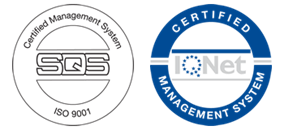Internal Communication and Education on Travel Risks are Top Priorities for 2017
London
NEW STUDY1 REVEALS 70% OF EUROPEAN ORGANISATIONS CONSIDER THE IMPROVEMENT OF INTERNAL COMMUNICATION AND EDUCATION ON TRAVEL RISKS AS TOP PRIORITIES FOR 2017
International SOS, the world’s leading medical and travel security services company, today revealed the results of the 2017 Business Impact of Travel Risk survey. Key findings, from the survey of European executives, include that travel security risk mitigation programmes are undermined by a lack of effective communication, with 70% of respondents planning to address this in 2017, and 60% have only a partial or no understanding at all of medical threats faced by their mobile workforce.
- 46% said health and travel security incidents had an impact on their business continuity
- 27% are still moderately to not confident in their level of preparedness
- Only 50% of organisations have conducted a comprehensive review of the health of their mobile workforce
- Only 39% have a wellness programme in place
Karel van de Pijpekamp, Managing Director Northern Europe at International SOS comments, “While organisations have medical and travel security risks high on the agenda, the survey demonstrates that a rigorous implementation and an on-going communication process is key to ensuring programmes are utilised effectively. This highlights potential cost and business continuity risks if travel security issues aren’t managed successfully due to a lack of communication. It also highlights a possible gap in Duty of Care when it comes to the safety and wellbeing of mobile workforces.”
Information and communication during crisis
With the troubling events of 2016, organisations have increasingly become aware of the challenges in protecting their people and the potential issues in their travel risk mitigation programmes. The respondents report the greatest challenges in mitigating travel risks during recent crisis were:
| Access to information about the situation |
43% |
| Communication |
43% |
| Awareness of roles and responsibilities |
30% |
| Location of employees |
30% |
| Assistance on the ground |
27% |
Over 40% of European organisations had difficulties with access to information and communicating with their staff in 2016. Respondents plan the following actions to mitigate risk of their mobile workforce in 2017:
| Improve communication | 70% |
| Review/Gap analysis of travel risk policy and procedures |
51% |
| Provide regular training to mobile workers |
50% |
| Drill with crisis simulation exercises |
47% |
Xavier Carn Regional Security Director for Europe at International SOS and Control Risks, said: “Should another major travel security incident occur tomorrow, 27% organisations declared they were still moderately to not confident in their level of preparedness. Testing both plans and procedures are a critical success factor of travel risk management to ensure the continuity of the business.”
“It is essential for decision-makers to have a reliable and up to date source of objective information2 to help them implement travel risk policies and individual travel plans. Recent crisis like Brussels, Tunisia, Turkey or even Berlin have also demonstrated that emergency communications must be robust and our advice is to ensure these are multi-channel3 so that people affected by a crisis can receive and request the information they need to reduce their exposure to associated risks.”
Organisations challenged to know better how well their mobile workforce is
Despite the fact organisations have mobile workforce risk management high on their agenda (64% of respondents), 60% have only a partial or no understanding at all of medical threats and hazards faced by their mobile workforce, and more than half don’t have health and wellbeing programmes in place.
% of organisations which have:
| Wellness programme | 39% |
| Return to work | 56% |
| Impact of operations on local community health | 58% |
| Health communication | 61% |
| Understanding of the link between worker wellbeing, absenteeism and productivity | 66% |
| Health data protection | 67% |
| Training and access to expert information of mobile workers | 71% |
| Infectious or contagious outbreak | 71% |
| Emergencies | 75% |
Dr Mark Parrish, Regional Medical Director - at International SOS commented: “Organisations understand the link between worker wellbeing, absenteeism rate and long term productivity, (66% of the respondents) but only 39% have a wellness programme in place despite the fact that wellbeing is likely to become increasingly important in the future and translates into better business outcomes.”
“Preventing an infectious outbreak, an accident or sufferings is crucial for an organisation. Promoting wellbeing at work and having a return to work procedure is also its responsibility to ensure the continuity of the business. Today, we see a need for the occupational safety and health practitioners to understand and implement global health risk plans within their organisation. Most organisations do something about health risks assessment and management but usually in a fairly ad hoc, uncoordinated way.”
“The process should start with having a comprehensive review of what is done for the mobile workforce from an occupational health, sickness absence, health communication, employee health and wellness perspective.”

View our 2017 Business Impact of Travel Risk Infographic
About the International SOS Group of Companies
The International SOS Group of Companies is in the business of saving lives, protecting your global workforce from health and security threats. Wherever you are, we deliver customised health, security risk management and wellbeing solutions to fuel your growth and productivity. In the event of extreme weather, an epidemic or a security incident, we provide an immediate response providing peace of mind. Our innovative technology and medical and security expertise focus on prevention, offering real-time, actionable insights and on-the-ground quality delivery. We help protect your people, your organisation's reputation, as well as support your compliance reporting needs. By partnering with us, organisations can fulfil their Duty of Care responsibilities, while empowering business resilience, continuity and sustainability.
Founded in 1985, the International SOS Group, headquartered in London & Singapore, is trusted by 12,000 organisations, including the majority of the Fortune 500, as well as mid-size enterprises, governments, educational institutions and NGOs. 12,000 multicultural medical, security and logistics experts stand with you to provide support & assistance from over 1,000 locations in 90 countries, 24/7, 365 days.
To protect your workforce, we are at your fingertips: www.internationalsos.com
Notes to Editors
1. 2017 Business Impact of Travel Risks Survey is an International SOS survey conducted among 257 people in 25 countries in Europe, mainly executives in Security, Travel, Health and Safety, Risk, HR, Operations and General Management. Research was conducted online in the period November 16th 2016 to December 11th 2016. The survey asked respondents about their understanding of the correlation between health and travel security risks and business continuity and how to keep their mobile workforce safe
2. For more information ORGANISATIONS TAKE CONTROL AS TRAVEL RISKS ARE PERCEIVED TO RISE press release
https://www.internationalsos.com/newsroom/news-releases/travel-risk-map-2017-nov-14-2016
3. For more information COMMUNICATING WITH TRAVELLERS IN A CRISIS press release








